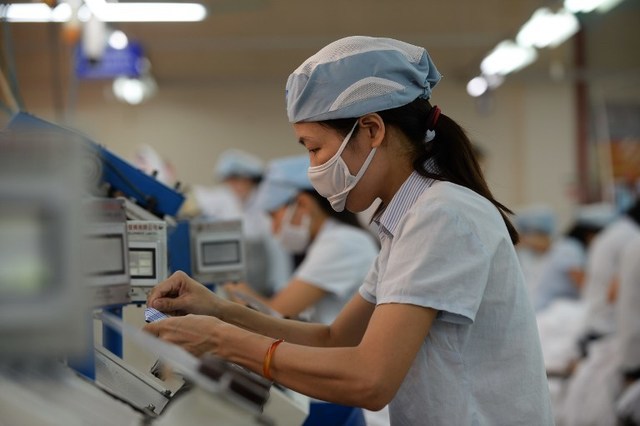At least 25% of jobs in Southeast Asia may be automated in next 2 decades – ILO
MANILA, Philippines – At least 25% of jobs in Southeast Asia may be automated in the next two decades, according to the International Labour Organization (ILO).
ILO reported that workers in low-skilled, labor-intensive sectors, may be displaced by technology which has become increasingly accessible.
“It is estimated that at least a quarter of jobs in South-East Asia may be automated in the next decade or two. Lower-skilled jobs in labour-intensive sectors will be increasingly displaced by technology that is cheaper and more accessible,” ILO said.
In particular, ILO reported the automation of jobs could be worrisome. “This is a particular concern for the 9 million people in Southeast Asia who work in the textiles, clothing and footwear sectors.The majority of these vulnerable workers are young women,” it said.
No longer feasible
ILO added that because of technological developments changing the field of work, Southeast Asian countries are no longer able to follow “standard development routes” of moving workers from farms to factories, and eventually toward higher value service jobs.
“As a result of such technological change, Southeast Asian countries are unable to follow the mass employment manufacturing model pursued by Japan, Korea and China. That is, moving workers first from the farm, to the factory, and then finally into higher value services jobs,” ILO said.
ILO explained that with this standard development route no longer feasible, there is a need for countries wherein a majority of jobs come from the low-wage labor market, to look for ways to reposition themselves.
“As technology replaces much of the labour-intensive factory work, people are thus unable to move from the farm to other sectors. The standard development route is no longer feasible and countries that currently compete on low-wage labour need to reposition themselves,” it said.
STEM, soft skills development
To address job displacement, ILO reported countries in Southeast Asia have focused on developing skills in science, technology, engineering, and mathematics (STEM) as employers are beginning to look for workers with a strong background in these areas.
Despite this, ILO pointed out that developing workers with strong backgrounds in STEM may be a challenge as enrollment in STEM courses in Southeast Asia was lower compared to other regions. In addition to this, participation in STEM courses was also lower among female students.
It also reported participation in STEM courses in the Philippines is lower than the regional average for both men and women, with enrollment in STEM courses among Filipino men pegged at 18% and Filipino women at 10%.
Along with a demand for workers with strong backgrounds in STEM, “soft skills” or “people skills” are also sought after.
“To thrive in this new world, young people will increasingly need soft skills. These include skills in leadership, communication, creativity, innovation, and organization. Skills required to collaborate with colleagues, to adapt to change, to empathize with end users, to inspire an audience, to learn new skills,” ILO said. – Rappler.com
Source: https://www.rappler.com/business/200863-jobs-southeast-asia-automation-next-2-decades-international-labour-organization


 Thailand
Thailand




